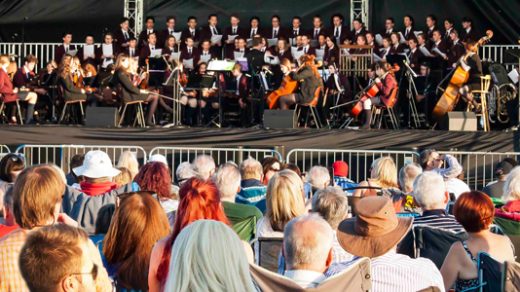The price of global success

In the Organisation for Economic Co-operation and Development’s (OECD) latest PISA study, the UK ranks at 21st in the world for science, 23rd for reading and 26th for mathematics. Meanwhile Asian counterparts including Shanghai, Singapore, South Korea and Hong Kong are topping the global league table with their high performing education systems. But whilst the results cast the spotlight on academic excellence, high-pressured learning and long hours of studying show such success may come at a high price.
When the results were revealed in December, Secretary of State for Education Michael Gove raised concerns that the UK education system’s league performance had been “at best, stagnant, at worst declining” in recent years and voiced a need for reform.
He told the House of Commons that high performing Asian nations are “leaving our children behind in the global race,” adding: “That matters because business is more mobile than ever, and employers are more determined than ever to seek out the best-qualified workers. Global economic pressures, far from leading
to a race to the bottom, are driving all nations to pursue educational excellence more energetically than ever before.”
The PISA (Programme for International Student Assessment) 2012 survey aimed to deliver a snapshot of global education, as around 510,000 15-year-old students across 65 countries took tests. Participating pupils and their school principals also answered questionnaires about students’ backgrounds and learning experiences to the broader school system and learning environment.
As the UK, along with other OECD members, digested the new PISA rankings, it was acknowledged by spectators that some countries’ high performances may have been achieved at the cost of students’ happiness.
The OECD website looked at the worldwide media reaction to the survey, and stated: “What about the ‘winners’ – the Chinese city of Shanghai as well as OECD members like Japan and Korea, among other Asian economies that topped the PISA tables? While their achievements in education were widely recognised, there was concern, too, about the price being paid by the region’s hard-working students.”
The piece drew attention to Korea’s Chisun Ilbo newspaper, which suggested that while students there had achieved strong PISA results they “showed a lack of interest in subjects” sometimes attributed to the “relentless pressure on Korean kids to succeed, which sees many follow an intensive eight-hour day in school with another three or four hours in an evening cram-school.”
Reports of this concern were not exclusively in response to PISA though, as the apparent ‘education fever’ in South Korea has been the subject of reports over recent years.
‘Cram’ schools, known as Hogwan, are said to be a financial burden on many parents as they strive to ensure their children pass exams to enter top universities, which are viewed as critical for future career prospects. The cost of such extra tuition is said to be so heavy that it puts families off having more children, and therefore the situation is impacting on the country’s birth rates too.
OECD’s report on the reaction to PISA also highlighted a BBC piece which, again, focused on South Korea’s gruelling double school shifts, and quoted education minister Seo Namsoo saying: “We still have a long way to go but we are doing some soul-searching in our society, and our goals now are about how to make our people happier.”
Could this “soul-searching” be drawing South Korea to the UK’s education model?
In 2011 the high achieving, independent North London Collegiate School (NLCS), which was founded in 1850, launched a boarding and day school in Jeju, South Korea. Inspected by NLCS UK, and with a governing body of representatives from the UK, USA and Korea, the Jeju school’s ethos aims to “provide an exceptional educational experience, based on the traditions, ethos and practices of North London Collegiate School, UK,” as well as enabling “each student to make the most of their gifts.”
Whilst the UK may have a way to climb in the global numeracy, science and reading league, children don’t face such long hours of costly studying to ‘cram’ in preparation for a future defining test.
There is also reason to believe that emphasis on students enjoying subjects and engaging in a variety of activities is still aiding success in its own way.
For instance, the recent Educate Awards celebrated Merseyside primary and secondary schools’ strengths and achievements across a range of subject areas.
The ceremony saw talented children shine in musical and theatrical performances, and awards were presented for top teaching, innovative learning and projects which furthered pupils’ abilities and aspirations whilst helping them to engage with communities.
Having picked up the Science Project of the Year Award for a ‘science week’ programme, The Academy of St Frances of Assisi’s head of science, Wendy Williams, says: “I believe I have helped to inspire the next generation of scientists and engineers with fun and participative events and activities, and this shows in the amount of students now attending STEM (science, technology, engineering, maths) club.
“In turn I anticipated a greater interest in science; this had proved to be a huge success as I have been inundated with the amount of requests for the uptake of separate sciences this year. Students from all year groups are now asking about how to get into GCSE science and not vocational science. Many students are now asking about careers in science and the pathways to get them into that particular position, this is essential for the future of country.”
Meanwhile, Archbishop Beck Catholic Sports College’s IT and business teacher, Suzanne Birchall, collected the Spirit of Enterprise Award for the school’s Archie’s Mob project.
The accolade honoured an initiative which saw students come up with their own business idea, write a proposal and pitch to and persuade people. According to Mrs Birchall the project gave participants “real life skills” as well leading students to show “confidence and passion they wouldn’t have shown otherwise,” therefore highlighting the importance of delivering practical experience as well as academic qualifications.


